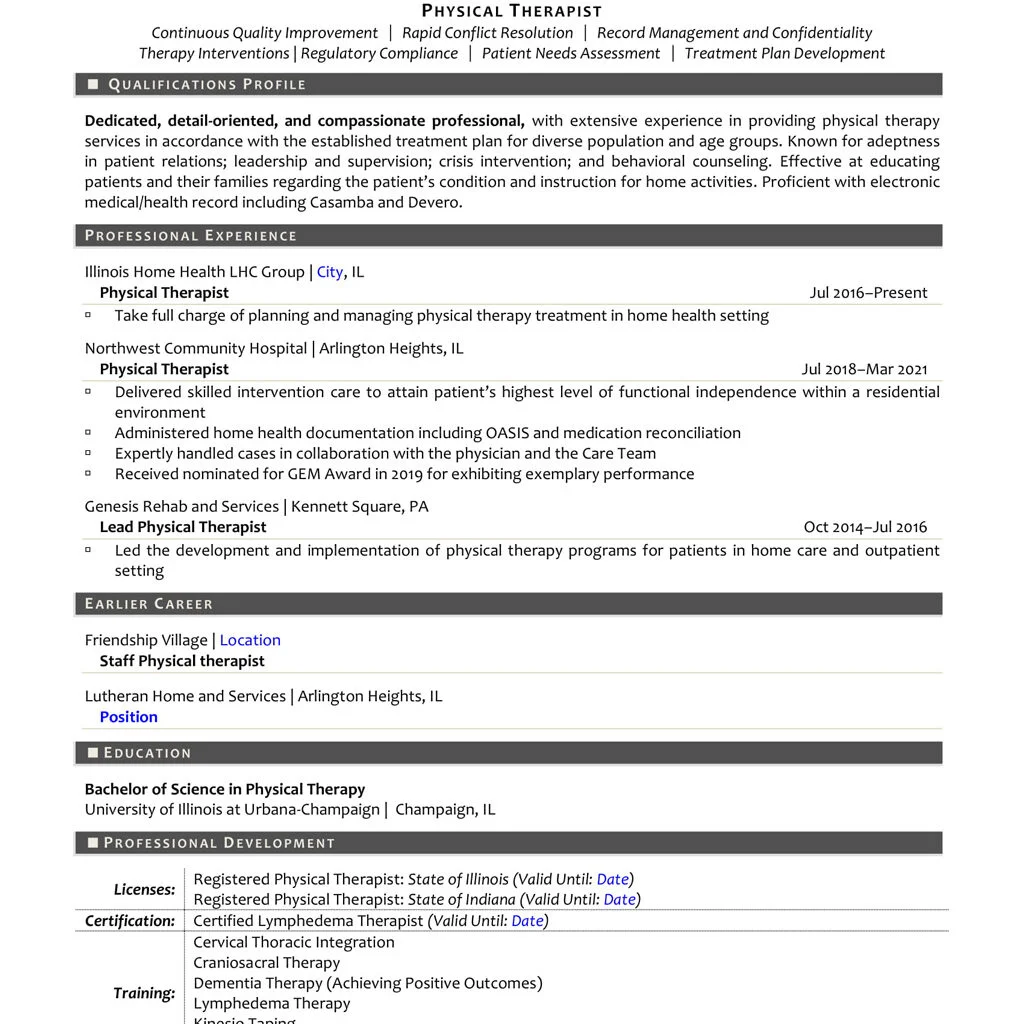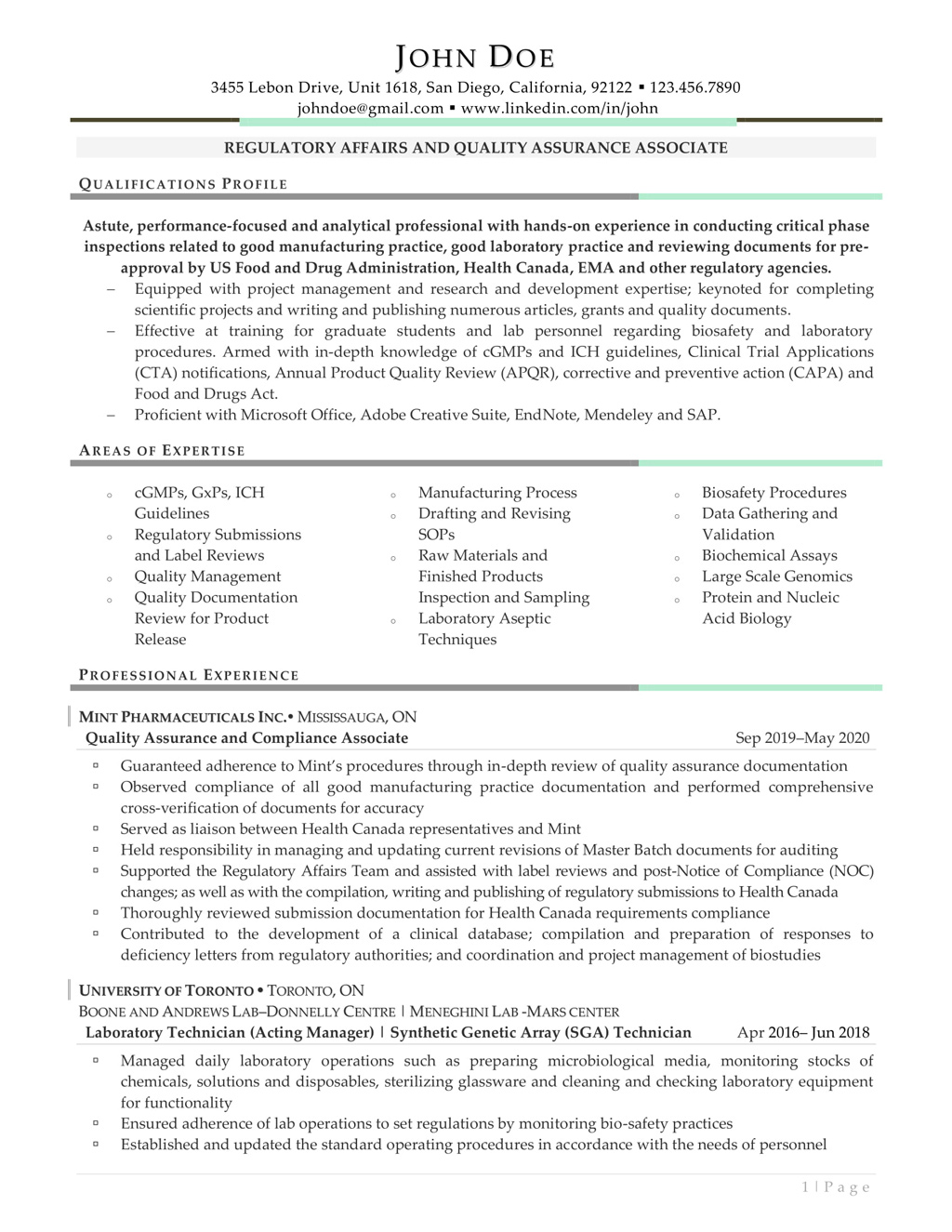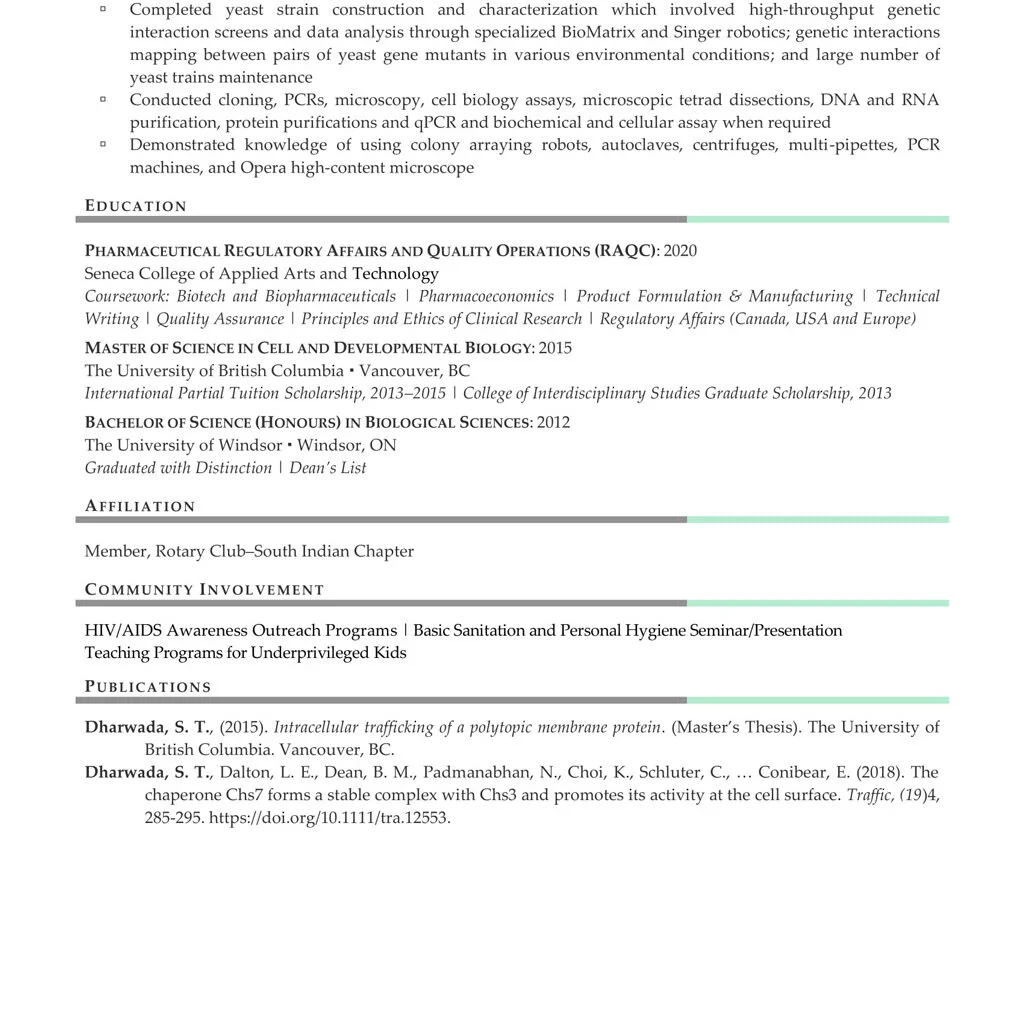When applying for a job, you want recruiters to know why you are the best fit for the job when they read your resume. To get the attention of hiring managers, make your resume professional and polished. If you’ve spent your time researching resume best practices, then you probably have heard that a one-page resume is ideal.
Despite the advantages of single-page resumes, determining resume length is important when updating your resume. Having that said; a resume’s length comes only second to content quality and readability.

How Long Should a Resume Be?
The recruitment process has changed. In line with this, many job seekers have a presiding belief that their chances of getting hired depend on resume length. They think that a two-page resume could hurt their chances. However, it’s more nuanced than that. When a resume is long, recruiters might stop reading and simply skim through the document. On the other hand, a one-page resume can make a candidate look like they lack enough experience.
One-Page Resume: Brevity Over Content
If you’re a career shifter or looking for jobs outside your expertise, a long resume with all your professional accomplishments wouldn’t be necessary. When a hiring manager reads your resume with no transferable skills, they might discard your application. Therefore, focus on your skills and experience, educational attainment and academic achievements, and relevant activities. Leverage a single-page resume to impress without getting too wordy.
If you have a progressive career—meaning there’s no big change—then you can just list a few job descriptions. With fewer than seven to ten years of relevant experience, then there’s nothing much to add on your resume. by contrast, having many relevant experiences calls for extra space. Only then will it be best to keep a two- or three-page resume.
To cut it short, consider a one-page resume if:
- The experience you have is not enough for hiring managers to choose you.
- You are changing careers and you don’t have any transferable skills.
- You only had one or two positions with your previous employer.
Two-Page Resume: Quality Over Quantity
Some recruiters prefer a two-page resume. They want to read two full pages with relevant and helpful information presented neatly, instead of a one-page resume. Hiring managers review a pile of resumes each day, so as a job seeker, make your resume easy to read.
Be sure to make each moment count when presenting your professional experience. Keep the information relevant. You might wonder, “Is it necessary to list every single job description I had in my previous role?” The answer is yes if you’re aiming for a higher position in a company. Conversely, it’s a no if you have little experience.
Making your resume fit into two pages allows you to list your accomplishments in greater detail. Also, it leaves room for different sections, which can give your resume context and depth. The second page gives you an extra space to convince the reviewer to invite you for an interview.
What information should you highlight on the first page?
- Summary of qualifications: You have to communicate your strengths and abilities that you want your future employer to know.
- Professional experience: List recent positions you’ve held which can boost your credibility. If you’re seeking a management position, a reverse-chronological resume helps recruiters to evaluate a candidate.
- Education: It’s always good to show your educational attainment, as it will amply speak about your academic progress and accolades.
Professional vs. Student Healthcare Resume
The healthcare industry provides millions of jobs for healthcare practitioners and technical occupations. According to the US Bureau of Labor Statistics, employment opportunities are projected to grow by 15% from 2019 to 2029.
A resume with healthcare skills is a selling point for applicants for public and private healthcare organizations. One of the factors to consider when writing a resume that will get you an interview is resume format. A resume is for job candidates in administrative or office operations. Candidates in medical, academic, and scientific professions use curriculum vitae (CV).
So again, how long should a resume be?
Student Resume
One-page resumes work well for applicants who are targeting an entry-level or associate position in a company. Sometimes, keeping your resume down to one page can be a strategic move. This is typically the case for students with limited experience or for those changing careers.
Looking at a job post, you know the skills and experience that hiring managers look for. The next thing to do is to tailor your resume to the job. It is best to list your qualifications, which will prove why you’re the best candidate.
Professional Resume
Physicians and executives of large hospitals submit a CV instead of a resume. Given their years of experience in the field, they must list their full career history. A professional resume comprises all credentials, degrees earned, internships, awards, publications, speaking engagements, conferences, and organizations.
Being in the field for quite some time, going through the details depends on the level of experience. However, it’s essential to read every job description and include only the major skills that employers look for.
How Far Back Should I Go Listing Relevant Experiences?
Determining how many years of work history should be listed on your resume can be tricky, because it is dependent on jobs that you are currently looking for. While the rule of thumb is to include all experience spanning 10 years, it’s crucial to consider its importance. When you have a decade’s worth of work experience, especially for C-level professionals, it’s best to quantify your contributions.

What to Include on a Healthcare Resume
Hiring managers have a few seconds to review a resume. That said; provide only the most relevant information. You may want to give recruiters the big picture of your achievements and skills, but human resources will not be as much interested in reading what you did 20 years ago. Even if it is impressive, there are other ways to market your track record.
- List at least 3 to 7 bullet points for each job.
Your experience working in a hospital setting should be front and center. How? Start by being specific. Then give enough details such as career highlights, putting more emphasis on achievements and less on responsibilities. Avoid listing everything you did and focus only on what matters. Listing mere duties won’t make you stand out, and instead bore your readers.
- Add experiences going back 10 years.
Ten years of experience is enough to demonstrate that you are an expert in the field. Include job duties from recent or relevant information. This will allow you to focus on your key achievements and save space.
- Remove redundant information and filler words.
If you have a skills section, try to shorten your summary by removing phrases that describe the skills you’ve listed. Make your resume introduction worth the read. Don’t list similar job titles separately.
- Make use of font, spacing, and margins.
Customizing the layout will make room for more entries including margin as well as font size and spaces between bullet points and resume sections.
Before Submitting Your Resume
Wherever you are in your career, the role you’re applying for is your guide to decide on how long your resume should be. From there, focus on ensuring that recruiters will see relevant content. Clearly articulate your qualifications as compared to simply listing your tasks or removing details to make your resume short. A hiring manager won’t discard a candidate because of resume length but because of poor content.
Grab the chance to prove your worth by quantifying your accomplishments on your resume. Present your qualifications without missing precious information about your career. Let the experts help you today in marketing yourself effectively.



